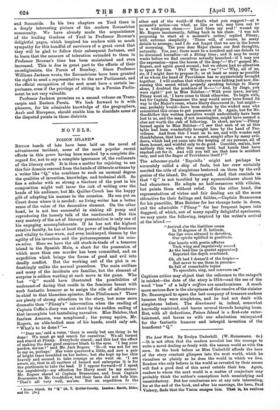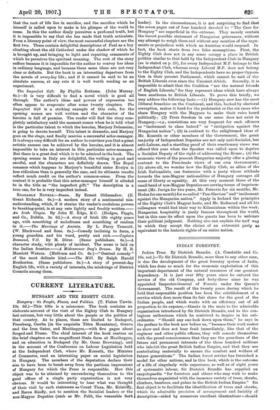The Last Word. By Evelyn Underhill. (W. Heinemann. 8s.) — It
is not often that the modern novelist has the courage to write a novel dealing as freely with the unseen world as with the seen. In the book before us Miss Underhill affords the hero of the story constant glimpses into the next world, which he visualises as plainly as he does the world in which we live. Readers who only believe in the world as revealed by their senses will find a good deal of this novel outside their ken. Again, readers to whom the next world is a matter of conjecture may probably think the author's conceptions both unsatisfying and unsatisfactory. But her conclusions are at any rate interesting, for at the end of the book, and after his marriage, the hero, Paul Vickery, finds that the Vision escapes him. That ia, he realises
that the root of life lies in sacrifice, and the sacrifice which he himself is Galled upon to make is his glimpse of the world to come. In this the author dimly perceives a profound truth, but it is impossible to say that she has made that truth articulate. From aliterary point of view, the most successful chapters are the first two. These contain delightful descriptions of Paul as a boy climbing about the old Cathedral under the shadow of which he is brought up, and bringing to light and repairing ornaments of which he perceives the spiritual meaning. The rest of the story suffers because it is impossible for the author to convey her ideas in ordinary language, and because these same ideas are not very clear or definite. But the book is an interesting departure from the novels of everyday life ; and if it cannot be said to be an absolute success, at any rate it is well worth reading as an experiment.











































 Previous page
Previous page